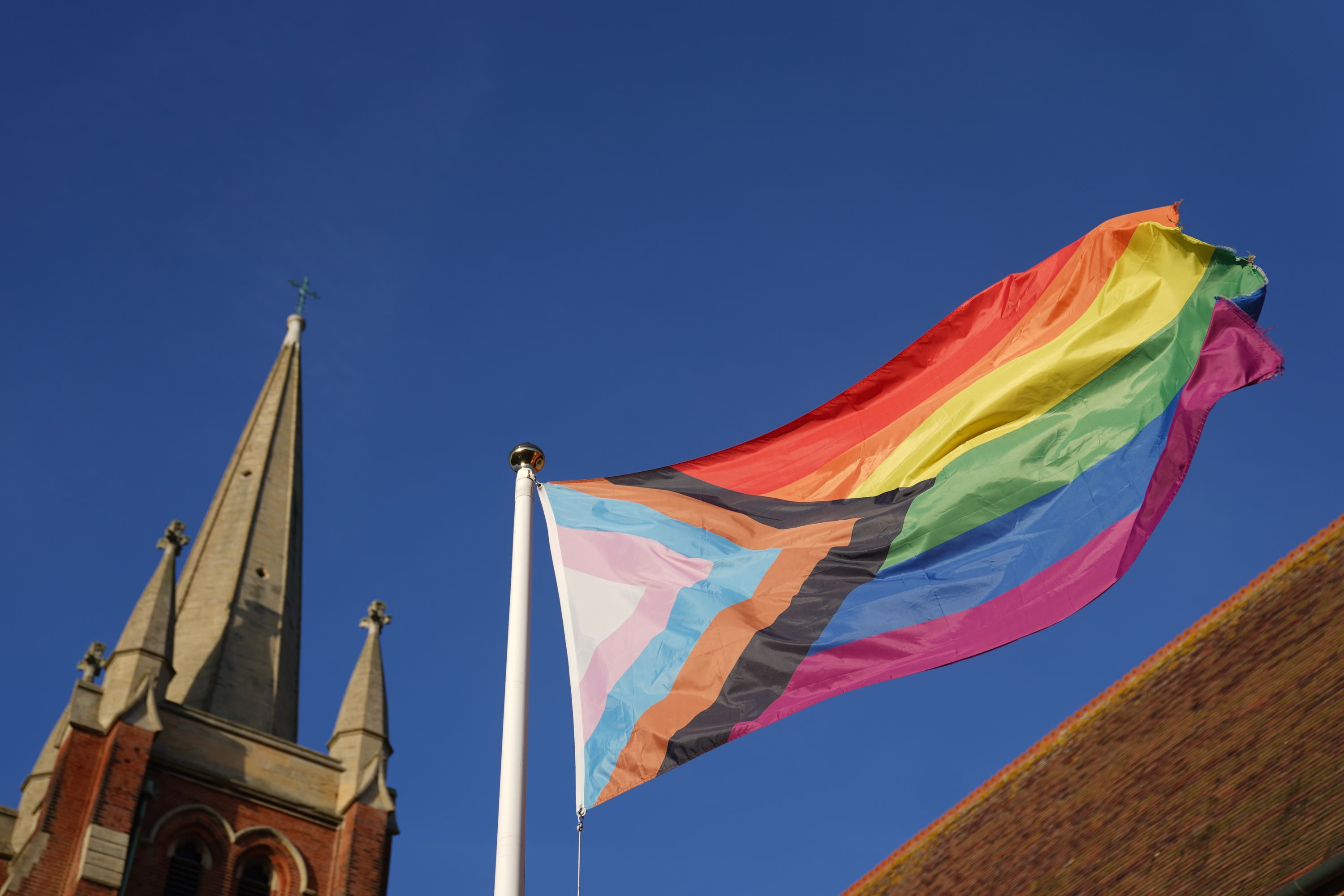Church of England Synod hears of ‘trench warfare’ on same-sex blessings
The Archbishop of York acknowledged that ‘what’s before us isn’t what everyone wants, it’s not really what anyone wants’.

Your support helps us to tell the story
From reproductive rights to climate change to Big Tech, The Independent is on the ground when the story is developing. Whether it's investigating the financials of Elon Musk's pro-Trump PAC or producing our latest documentary, 'The A Word', which shines a light on the American women fighting for reproductive rights, we know how important it is to parse out the facts from the messaging.
At such a critical moment in US history, we need reporters on the ground. Your donation allows us to keep sending journalists to speak to both sides of the story.
The Independent is trusted by Americans across the entire political spectrum. And unlike many other quality news outlets, we choose not to lock Americans out of our reporting and analysis with paywalls. We believe quality journalism should be available to everyone, paid for by those who can afford it.
Your support makes all the difference.An archbishop has described as “trench warfare” the process since the Church of England approved blessings for same-sex couples, while the Synod was warned there could be a split due to continued disagreement on the matter.
A meeting of the church’s parliament on Monday heard further debate on standalone services for couples to be blessed.
In February 2023, Synod voted in favour of offering blessings to same-sex couples in civil partnerships and marriages after a marathon debate across two days.
Synod, after what has I think for all of us felt like 18 months of trench warfare on this issue, I just wonder whether the time has come to put down our rifles and could I suggest a little game of football in no man's land?
In December the first same-sex partnerships received blessings as part of wider services, but some have argued that blessings should be allowed to take place at standalone services rather than only during regular public worship such as the Eucharist or Evensong.
A meeting of the latest Synod in York saw members vote to approve a motion which included a request to the House of Bishops that restrictions on using such prayers in standalone services are removed, alongside “pastoral reassurance” for clergy who do not wish to carry them out.
Archbishop of York Stephen Cottrell made a reference to the Christmas Truce in 1914 of the Second World War, saying: “Synod, after what has I think for all of us felt like 18 months of trench warfare on this issue, I just wonder whether the time has come to put down our rifles and could I suggest a little game of football in no man’s land?”
Despite speaking in support of the motion, he acknowledged that “what’s before us isn’t what everyone wants, it’s not really what anyone wants, but it is an Anglican way forward”.
He insisted that “no parish, no priest has to offer these prayers” and, once more detail has been worked out, standalone services can take place while those who “for reasons of conscience and theological conviction cannot support this will have access to “pastoral care, sacramental care and teaching ministry”.
Reverend Ian Paul warned that passing the motion would “focus a split in practice”.
The only way forward is a watertight and enduring protection of conscience
He told those gathered: “The reason is that nowhere in Scripture, nowhere in the history of the church catholic, nowhere in the Church of England’s own doctrine, nowhere in past statements by the House of Bishops until very recently, has sexual ethics been ‘a thing indifferent on which we can agree to disagree’. We can’t.”
Speaking after the debate, the Archbishop of Canterbury Justin Welby said: “The only way forward is a watertight and enduring protection of conscience.
“We are now at the point of seeking to work out how that works; it must give those of all views a place as treasured and flourishing parts of the Church of England, and the protection must have teeth to protect against harassment and bullying.”
The matter will come before Synod again in February, by which time an update is also expected from a special commission which is carrying out a theological feasibility study around clergy in same-sex civil marriages.
Also on Monday, Synod overwhelmingly passed a motion to support a call for Church of England bishops to press the Government for a review of the adequacy of social security provision and consider the feasibility of introducing a so-called “essentials Guarantee” to ensure everyone can afford the basics in life.
The motion also urged bishops, especially those in the House of Lords to “strongly encourage” the Government to do “everything possible” to bring about an immediate end to the two-child benefit limit, something Mr Welby has previously spoken strongly about.
The Labour Government has not promised to end the cap, with Prime Minister Sir Keir Starmer saying before his election that he would do so “in an ideal world” but that “we haven’t got the resources to do it at the moment”.